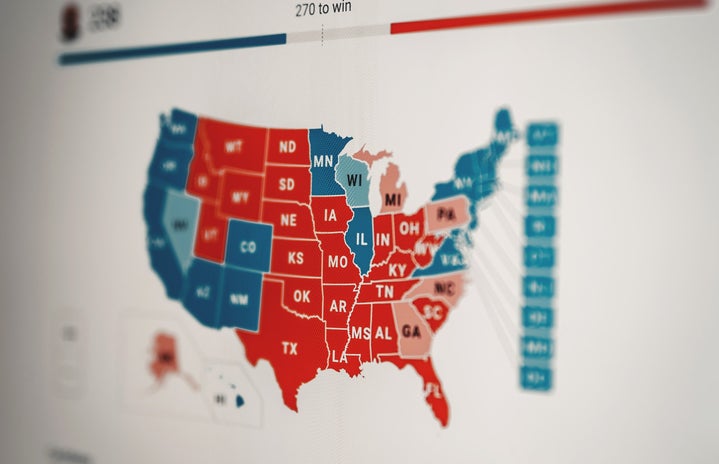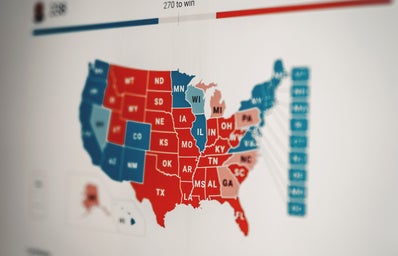This year, national elections are scheduled or expected in at least 64 countries, covering almost half the global population. No wonder 2024 is being called “The Year of Elections.” In a time of such instability, the way the wind blows in the political arena has never felt more important. The urgency to pay attention to elections happening outside your own country is crucial, as many of the election results decided this year will have impacts spreading across the global stage. How major conflicts will play out, how the global economy will be shaped, and the potential fate of democracy at stake all seem to hinge on major elections happening across the globe in 2024. So where are they happening?
Some countries have already been to the ballot, with significant implications. For instance, Taiwan held their presidential and legislative elections on the 13th of January, with the run-up to the polls raising many questions involving the growing tensions between China and Taiwan. However, the results of the election are being trumpeted as “a triumph for democracy” with Taiwan’s Democratic Progressive Party (DPP) securing their third consecutive, though narrow, win. However, this has far from secured peace or stability, despite China’s reaction so far being rather subdued.
Two critical elections happening in February are those in Indonesia and Pakistan, the world’s fourth and fifth-most populous countries. On February 14th, Indonesia will hold the world’s most significant single-day election to choose their president, vice president, and almost 20,000 other national, provincial, and district representatives. While the Governor of Central Java Ganjar Pranowo (PDIP), benefits from the endorsement of the incredibly popular incumbent President Joko Widodo, who out of the likely presidential candidates will win remains unclear. Meanwhile, Pakistan’s most popular politician, the former Prime Minister Imran Khan, sits in jail, while his party has been suppressed and his supporters arrested in the run-up to February’s election. The concept of a ‘free and fair’ election under these conditions seem unlikely.
In Africa, a significant election to pay attention to is in South Africa, where the African National Congress (ANC) party (which has governed since 1994, from when Mandela first became president and apartheid ended) faces doubts over whether it can secure a majority. While a coalition seems possible, the future government faces many issues, such as their ongoing energy crisis, government and civil corruption and crime, and high unemployment, particularly among young South Africans.
The world’s largest democracy, India, is set to also hold its general election this year, with Prime Minister Narendra Modi looking very likely to secure a third term against a coalition of opposition regional and national parties called the Indian National Developmental Inclusive Alliance (INDIA). Despite Modi’s polarising nature, with his crackdowns on journalists, political dissidents, Kashmir, and Indian Muslims, support for him stays strong, regardless of how his leadership seems to weaken liberal democracy in India.
In Europe, March sees Russians going to the ballot – though the question of a ‘free and fair’ election seems incredibly unlikely, with there being little question about Vladimir Putin being re-elected as President. With the suppression of any opposition against him and the fact that his own spokesperson told the New York Times that the “presidential election is not really a democracy, it is costly bureaucracy,” Russia’s so-called “election” seems more of a performance than any sort of commitment to liberal democratic values. Thus, despite the ongoing war with Ukraine and Putin’s failure to capture the country with his initial invasion, Russia’s political landscape is unlikely to shift anytime soon.
For Ukraine, however, there has been much debate over whether their presidential election, initially scheduled for March, will go ahead, although President Volodymyr Zelensky’s five-year term is up since elections are prohibited under martial law, which was brought in when Russia invaded. This was imposed after Russia launched its full-scale invasion. While many in Ukraine fear that any election could distract from the war effort, there is mounting pressure from the US for Ukraine to hold elections or risk being perceived as anti-democratic and thus have potential support withdrawn. Nevertheless, there are many obstacles to holding an election during wartime, such as issues of security, the fact that much of the Ukraine population is currently displaced, and that many of the usual polling stations (such as schools) have been damaged in the war. Currently, therefore, whether an election will go ahead is uncertain.
An election that will almost definitely go ahead, and one that is already drawing significant worldwide attention, is the US election. With incumbent Joe Biden running for re-election, most likely up against former president Donald Trump, the election will surely be interesting. However, despite being a national election, only a tiny
portion of the country will determine the outcome, with the key states to watch including Arizona, Georgia, Michigan, Nevada, New Hampshire, North Carolina, Pennsylvania, and Wisconsin. Much seems to hold in the balance of this election, with a Trump re-election potentially seeing the withdrawal of US support from Ukraine and perhaps even from NATO.
Much closer to home, the UK election is set to go ahead at some point this year – though there is much debate as to exactly when. Many predict that this election could see the worst result ever for the Tories and a potential landslide victory for the Labour Party. With infighting, low poll rating, and low morale, the Conservatives seem weaker than ever. However, much is still uncertain, and if Rishi Sunak waits for an autumn election, the political landscape may have shifted as it often does. However, the current widespread opinion is that this election will end the 14-year Tory reign.
So, why should care about the elections happening around the globe this year? As I have tried to emphasize in this article, the potential impacts of many of these elections will spread beyond domestic bounds and reverberate worldwide. Furthermore, the state of democracy seems more fragile than ever – for the first time in two decades, there are more closed autocracies than liberal democracies worldwide. The geopolitical landscape seems increasingly volatile, and the outcomes of many conflicts seem uncertain.
But there is still hope. There is a historical precedent of reversing autocracies back to democracies and reintroducing free and fair elections. And these elections are important. Voting is important. In countries such as the UK, to be able to vote without coercion or restriction, to have your voice heard, and ability to shape the political face of the nation is something that should not be lightly dismissed or disregarded. You have a voice; use it.


